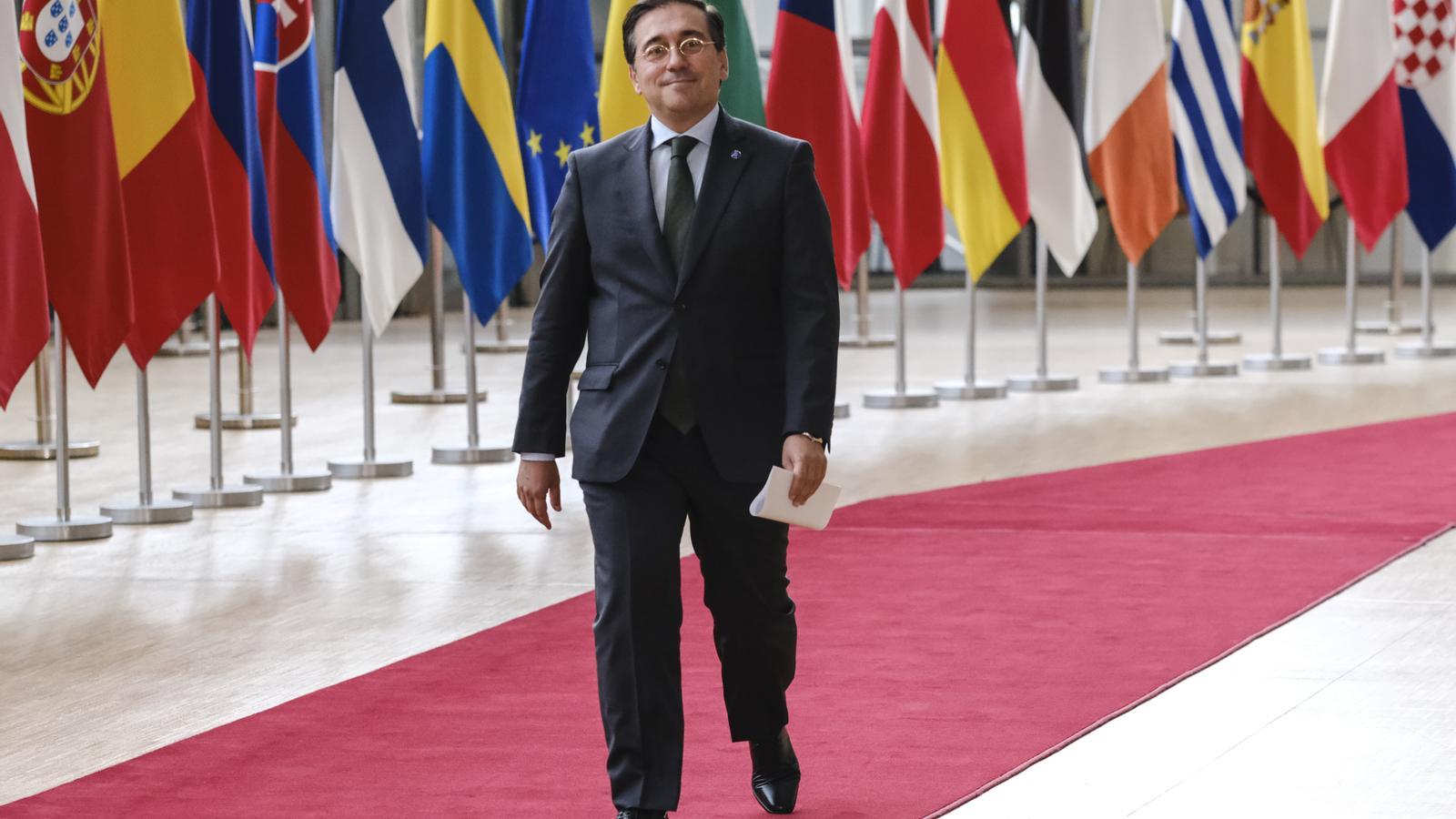EU countries are already "tired" of how Spain handles the official status of Catalan.
Most Member States criticize Spain for "forcing" the issue to be raised at ministerial meetings due to "internal political reasons."


BrusselsSpain has had it discussed seven times in just over a year and a half. on the official status of Catalan, Galician and Basque in the EU General Affairs Council. The Moncloa insists and frequently brings it to the table of foreign ministers. It has even managed to get it included on the agenda for a vote on two occasions, knowing that it lacked the necessary support and, therefore, no final decision would be taken. The pressure, for show and especially on Junts, may seem effective, but it is causing the majority of European Union member states—including some of those a priori in favor—to begin to grow "tired" of Spain "forcing" these types of discussions due to "internal political issues" and "without new arguments" that could convince the diplomats of several EU countries in the ARA.
A diplomat present in the EU Council chamber in which the official status of Catalan was discussed Last Friday, he asserts that "the feeling was one of fatigue." "It was clear that most of us were starting to get tired," another source indicates. "If it's brought back to a General Affairs Council, people may go from being annoyed to irritated," warns another diplomat.
Firstly, the sources consulted criticize the Moncloa for bringing to the table of the foreign or EU affairs ministers a proposal that has already been discussed so many times and on which there has been no progress. Thus, they ask that if Spain considers it should be brought back to the General Affairs Council, it should at least be presented with new arguments. For example, they particularly criticize the fact that Spain's Secretary of State for the EU, Fernando Sampedro, insisted at the last meeting that it is not necessary to reform the EU treaties to include these three languages on the list of official languages, despite the legal services of the Council of the EU denying this, as reported by ARA the day before.
The same sources indicate that "most countries" are "annoyed" by the way Spain is bringing the proposal to the EU Council and elevating it to ministerial meetings when it suits it for "internal political reasons." "That's not how it works," warns one of the diplomats consulted. However, this same source asserts that they see no problem with the initiative being worked on at a "technical level," that is, among the ambassadors of the member states, not the ministers.
Other more important issues
A growing number of countries believe that there are more important issues to be discussed so often in the midst of the war in Ukraine and Gaza than the official status of Catalan, Galician, and Basque. Moreover, according to diplomatic sources, this opinion is growing not only among countries opposed to the initiative, but also among the few states that support it. "It really isn't the time," said Luxembourg Foreign Minister Xavier Bettel, who had previously expressed his support for recognizing and defending the EU's linguistic plurality, in statements to the media.
However, sources from the EU Council presidency, which is temporary and held by Denmark for the second half of this year, do not rule out bringing up the issue again at a ministerial meeting after the summer when asked about it. "We know it's a delicate issue and we are willing to facilitate a solution," sources from the presidency told ARA. In this sense, everything points to the key role of the Danish government, one of the few in the European bloc still led by the Social Democratic family, like the Moncloa. However, at the last EU Council meeting, it was only included on the agenda as a point of discussion and not a vote, as they had agreed to at the first ministerial meeting of their presidency, where Spain requested that the official status of Catalan be put on the table.
